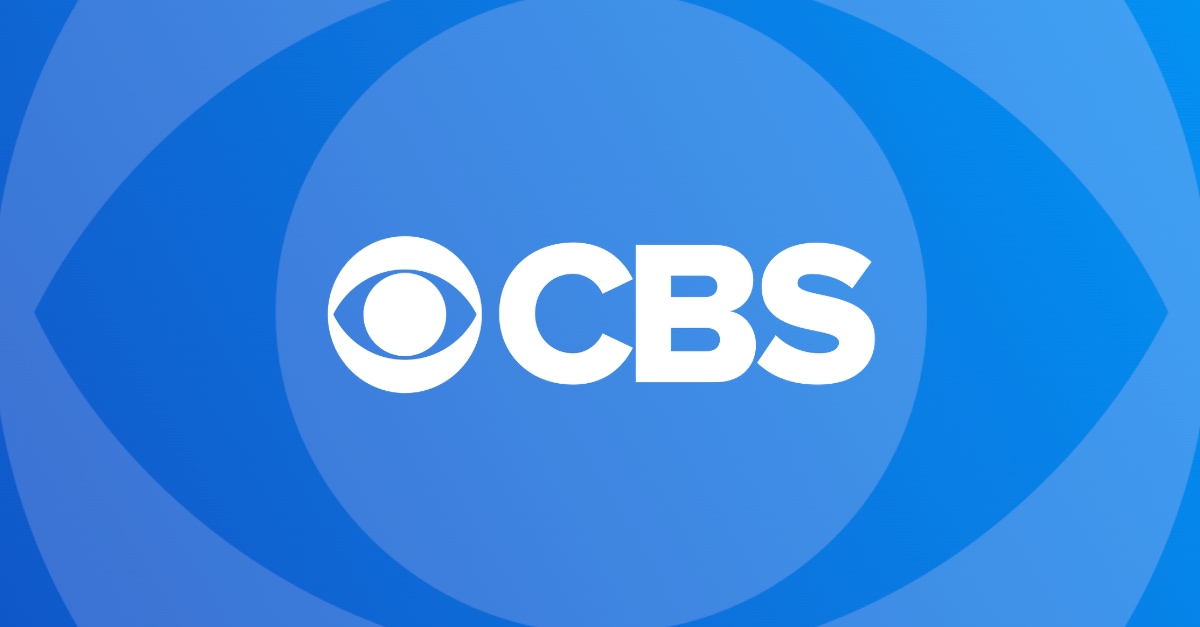The Heartbreak Of Cancellation: Why CBS Fan Favorites Vanish
For many television viewers, few announcements sting quite like the news that a beloved show, a series they’ve invested countless hours and emotions into, has been given the axe. The phenomenon of a "CBS fan favorite series cancelled" is a recurring heartache for loyal audiences, leaving them to wonder why their cherished narratives and characters suddenly disappear from the airwaves. It's a complex decision-making process, often shrouded in mystery for the average viewer, but one that is deeply rooted in the intricate economics and evolving landscape of the television industry.
From gripping dramas that keep you on the edge of your seat to heartwarming comedies that become part of your weekly routine, CBS has long been a powerhouse in broadcast television, offering a diverse range of entertainment options to suit every taste. However, even the most passionate fan bases cannot always save a show from its ultimate fate. Understanding the forces at play – from viewership numbers to production costs and the seismic shifts in how we consume media – offers a clearer picture of why even a "fan favorite" can face an unexpected end.
Table of Contents
- The Unseen Forces Behind the Axe: Understanding Network Decisions
- The Nielsen Numbers Game: Viewership and Demographics
- The Evolving Landscape: Streaming and Beyond
- A Look Back: Iconic CBS Fan Favorites and Their Fates
- Beyond the Ratings: Production Costs and Creative Differences
- The Enduring Legacy: When Cancellation Sparks Cult Status
- The Business of Broadcasting: Revenue, Advertisers, and Renewals
- The Fan's Perspective: Coping with Loss and Campaigning for Revival
- CBS's Programming Strategy: Balancing Tradition and Innovation
- The Future of Television: What Cancellations Tell Us
- Navigating the Aftermath: Where to Find Your Beloved Shows
- The Human Element: The Impact on Cast, Crew, and Communities
The Unseen Forces Behind the Axe: Understanding Network Decisions
The decision to renew or cancel a television series is rarely simple. While it might seem like a network would always want to keep a show that resonates with its audience, the reality is far more complex. Networks like CBS operate as businesses, and every show represents a significant investment of capital, resources, and talent. When a "CBS fan favorite series cancelled" announcement hits, it’s often the culmination of various factors, some obvious, others hidden from public view. These factors range from the show's performance against competitors to its long-term financial viability and even the network's strategic vision for its overall programming slate. It’s a delicate balancing act, weighing artistic merit and audience loyalty against cold, hard economic realities. Understanding these underlying forces is key to grasping why even seemingly popular shows can vanish.
The Nielsen Numbers Game: Viewership and Demographics
At the heart of every renewal decision lies viewership data, primarily provided by Nielsen. These numbers are the lifeblood of broadcast television, dictating advertising rates and, consequently, a show's profitability. It's not just about how many people tune in, but also *who* is tuning in. Advertisers pay premium rates for specific demographics – often the 18-49 age group, which is considered most desirable due to its spending power. A show might have a large overall audience, but if it doesn't attract the right demographic, its advertising revenue potential diminishes. For instance, while the Tony Awards on CBS lured 4.85 million viewers, its largest broadcast audience in six years, according to Nielsen’s data, this kind of special event viewership doesn't necessarily translate to consistent week-to-week performance for a scripted series. A steady decline in key demographic ratings, even if overall viewership seems stable, can be a major red flag for network executives. This is often the primary driver behind why a "CBS fan favorite series cancelled" decision is made, as the financial model simply no longer supports the show's continuation.
The Evolving Landscape: Streaming and Beyond
The rise of streaming services has fundamentally altered the television landscape, adding another layer of complexity to network decisions. Viewers now have unprecedented choice, moving away from traditional linear viewing schedules. While CBS.com allows viewers to watch full episodes and clips of popular primetime, daytime, late night, and classic shows, and sign in with their TV provider to stream live TV, including Dish, FuboTV, Spectrum, YouTubeTV, and Hulu, this shift means that traditional broadcast ratings are no longer the sole measure of a show's success. Networks must also consider how a show performs on their own streaming platforms (like Paramount+ for CBS content) and its potential for international sales. However, the costs associated with producing high-quality content for both linear and streaming can be astronomical. If a show isn't generating enough revenue across all platforms to offset its production budget, or if its streaming performance isn't meeting internal targets, it becomes vulnerable. The competition for eyeballs is fiercer than ever, and networks are constantly re-evaluating their portfolios to invest in content that can truly break through the noise and attract subscribers to their digital offerings. This evolving landscape makes the "CBS fan favorite series cancelled" announcements even more frequent, as networks adapt to new business models.
A Look Back: Iconic CBS Fan Favorites and Their Fates
CBS has a rich history of producing shows that capture the public's imagination, becoming staples of American culture. From the enduring popularity of daytime dramas like "The Young and the Restless," which revolves around rivalries, romances, hopes and fears of the residents of the fictional Midwestern metropolis, Genoa City, and "The Bold and the Beautiful," diving into the high society world of Los Angeles fashion, to long-running reality competition series like "Survivor," which recently announced its milestone 50th installment, the network has mastered the art of creating lasting entertainment. However, even shows with dedicated followings and critical acclaim have faced the chopping block. Series that once dominated primetime, drawing millions of viewers, have ultimately succumbed to the pressures of changing viewership habits, rising costs, or strategic shifts. The list of "CBS fan favorite series cancelled" includes dramas, comedies, and even reality shows that, for a time, felt indispensable to their viewers. Each cancellation leaves a void, but also sparks conversations about the show's legacy and the reasons for its untimely demise.
- Blue Bloods Season 14 Part 2
- Rocky Cast
- What Happened To Kathleen Turner Health
- Ken Wahl
- Recent Pictures Of Marlo Thomas
Beyond the Ratings: Production Costs and Creative Differences
While ratings are paramount, they are not the only factor in a show's survival. Production costs can escalate significantly over time, especially for shows with large ensemble casts, elaborate sets, or extensive special effects. Actors' salaries, crew wages, location fees, and post-production expenses can make even a moderately successful show financially unsustainable if its viewership doesn't justify the outlay. A network might look at a show with decent ratings but exorbitant costs and decide that the money could be better spent on a new, cheaper series with higher potential returns. Furthermore, creative differences between the network, producers, and writers can sometimes play a role. While less common as a direct cause for cancellation, ongoing creative disputes can lead to a show becoming less appealing to the network, or even to key talent departing, making renewal less attractive. These internal dynamics, combined with the financial pressures, contribute to the complex decision behind a "CBS fan favorite series cancelled" announcement.
The Enduring Legacy: When Cancellation Sparks Cult Status
Ironically, for some "CBS fan favorite series cancelled" shows, their untimely end can sometimes pave the way for a different kind of immortality: cult status. When a show is cancelled before its time, fans often rally, creating online communities, writing fan fiction, and keeping the show's spirit alive long after it leaves the air. This passionate devotion can elevate a series from merely popular to truly iconic. These shows, often remembered for their unique storytelling, complex characters, or groundbreaking themes, find a new life through word-of-mouth, streaming discovery, and retrospective analyses. While the immediate pain of cancellation is real for fans, the legacy of these shows often transcends their network run, proving that true impact isn't always measured in seasons, but in the indelible mark left on the cultural consciousness and the hearts of their dedicated followers. They become a testament to the power of storytelling, even when the network decides the story must end.
The Business of Broadcasting: Revenue, Advertisers, and Renewals
At its core, broadcast television is a business driven by advertising revenue. Networks like CBS sell ad time during their programming, and the price they can charge is directly tied to the number of viewers a show attracts, particularly within desirable demographic groups. When a show's viewership declines, or if it struggles to capture the attention of key demographics, its ability to generate significant advertising income diminishes. This directly impacts the network's bottom line. Additionally, networks must consider their entire programming schedule. They aim for a balanced lineup that attracts different audiences throughout the day, from the consistent viewership of CBS daytime shows like "The Price Is Right" and "The Talk" to their primetime dramas and comedies. If a show isn't performing well, it might be taking up a valuable time slot that could be filled by a new series with higher potential for attracting advertisers and viewers. The decision to renew is a strategic one, aimed at maximizing profitability across the entire network, and sometimes, even a "CBS fan favorite series cancelled" is a necessary sacrifice for the greater financial health of the network.
The Fan's Perspective: Coping with Loss and Campaigning for Revival
For the millions of viewers who talk with other fans and catch up with their favorite shows, the news of a "CBS fan favorite series cancelled" can feel like a personal betrayal. Fans invest deeply in characters and storylines, forming emotional connections that make the abrupt end of a series particularly painful. The immediate aftermath often sees an outpouring of grief, frustration, and sometimes, organized campaigns to save the show. Social media lights up with hashtags, petitions are launched, and passionate letters are sent to network executives. While these fan efforts rarely succeed in reversing a cancellation decision, they serve as a powerful testament to the show's impact and the strength of its community. They also provide a vital outlet for fans to process their disappointment and connect with others who share their love for the series. This collective mourning and activism highlight the unique bond between creators, networks, and the audiences who make television truly special.
CBS's Programming Strategy: Balancing Tradition and Innovation
CBS, as a major broadcast network, constantly navigates the challenge of balancing its long-standing traditions with the need for innovation in a rapidly changing media landscape. They continue to deliver the day's top stories with context and depth through the CBS Evening News team, and maintain a strong presence in local markets, providing news, weather, and sports for regions like Greenville, Spartanburg, Anderson, and Pickens, SC, and Asheville, Hendersonville, NC. This foundational strength in news and established reality/daytime programming provides a stable base. However, in primetime, the network must continually refresh its lineup to attract new viewers while retaining its core audience. This involves developing new dramas, comedies, and limited series that can compete with the vast array of content available on streaming platforms. Sometimes, this strategic shift means making tough choices, leading to a "CBS fan favorite series cancelled" in favor of a new show that aligns better with the network's future vision or demographic targets. It's a continuous cycle of evaluating, investing, and sometimes, letting go, all in an effort to remain competitive and relevant in the evolving entertainment industry.
The Future of Television: What Cancellations Tell Us
The increasing frequency of "CBS fan favorite series cancelled" announcements, across all networks, offers a glimpse into the future of television. It signals a shift away from the era of guaranteed long runs for even moderately successful shows. The emphasis is now on high-impact, buzz-worthy content that can drive subscriptions to streaming services or attract premium advertising rates. This trend suggests that future television might be characterized by shorter seasons, more limited series, and a greater willingness by networks to experiment and quickly pivot if a show doesn't immediately find its footing. While this can be disheartening for fans who crave long-term narrative commitment, it also opens up opportunities for more diverse storytelling and innovative formats. The industry is in a constant state of flux, and cancellations, while painful, are an integral part of this evolution, pushing networks to adapt and redefine what success looks like in the digital age.
Navigating the Aftermath: Where to Find Your Beloved Shows
When a "CBS fan favorite series cancelled" announcement shatters your viewing routine, the immediate question is often: "Where can I still watch it?" Fortunately, the digital age offers more options than ever before for revisiting beloved shows. Many cancelled series find a second life on streaming platforms, either on the network's own service (like Paramount+ for CBS content) or through licensing deals with other major streamers. You can often find CBS primetime, daytime, late night, and classic TV episodes, videos, and information on CBS.com, and sign in with your TV provider to stream live TV. Additionally, DVD and Blu-ray box sets remain a popular choice for collectors and those who prefer physical media. While the hope of new episodes might fade, the ability to re-watch and relive the magic of a series provides a comforting balm for the heartbreak of cancellation. Engaging with fan communities online also offers a space to talk with other fans, catch up with your favorite shows, and keep the spirit of the series alive.
The Human Element: The Impact on Cast, Crew, and Communities
Beyond the ratings and financial figures, it's crucial to remember the significant human impact of a "CBS fan favorite series cancelled." For the cast, crew, writers, and countless individuals involved in production, a cancellation means job loss and an abrupt end to their creative work. These shows are not just entertainment products; they are the livelihoods of hundreds of talented professionals, from actors and directors to set designers, costume artists, and catering staff. The sudden cessation of production can have ripple effects throughout the industry and even local economies, particularly in filming hubs like Los Angeles. While fans mourn the loss of a story, those directly involved face the daunting task of finding their next project. This human element underscores the gravity of network decisions and reminds us that behind every beloved show, and every cancellation, are real people whose lives and careers are profoundly affected.
The cancellation of a "CBS fan favorite series cancelled" is an inevitable, albeit painful, part of the television cycle. It's a decision driven by a complex interplay of viewership data, financial viability, evolving industry trends, and strategic network goals. While the heartbreak for fans is undeniable, understanding these underlying factors can provide a clearer perspective on why even the most cherished shows must sometimes come to an end. CBS continues to offer a diverse range of entertainment options, from news and sports for regions like Greenville, Spartanburg, Anderson, and Pickens, SC, and Asheville, Hendersonville, NC, to captivating dramas and enduring reality competitions like Survivor. The landscape of television will continue to evolve, but the passion of its fans and the stories that capture their imaginations will always remain at its heart.
Did your favorite CBS show get cancelled? Share your thoughts and memories in the comments below! What show do you miss the most, and what do you think was the real reason it ended? Let's talk about it. And if you're looking for more insights into the world of television, be sure to explore our other articles on network strategies and the future of streaming.

CBS Logo, symbol, meaning, history, PNG, brand

CBS Shows

CBS Logo, symbol, meaning, history, PNG, brand